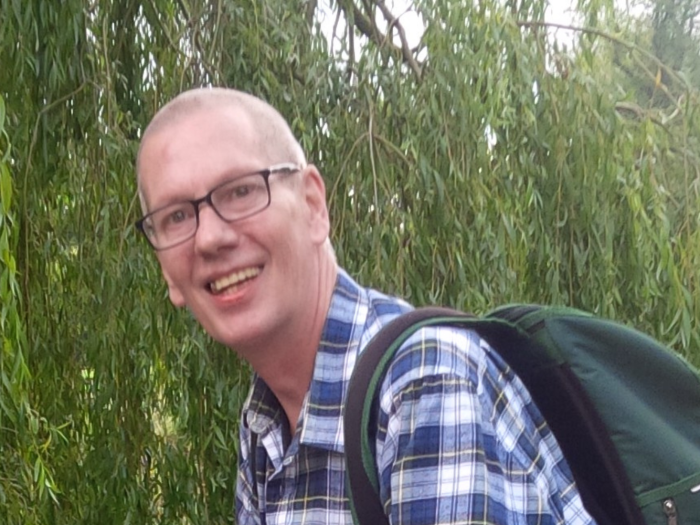In this blog, Steph Grant writes about the upcoming Head Injury and Homelessness Research Group (HIHRG) conference in Sheffield and how his own experiences as a person living with a traumatic brain injury has led him to chair the group.
Steph has been involved with SHSC for a long time, as a service user, volunteer and member of the lived experience research partnership (LERP).
Steph has written his blog mainly in the third person. He explains: “My writing in the third person is something that comes ‘natural to me’ since my accident. I often talk about it when I’m teaching or doing some other sort of presentation. It has to do with the concept of ‘ambiguous loss’, the bereavement if you like of your pre-morbid self. The loss of ‘I’ in identity. Perhaps it is discrete to serious traumatic brain injury survivors, but I don’t know about that. I think it does extend across some other pathologies?”
